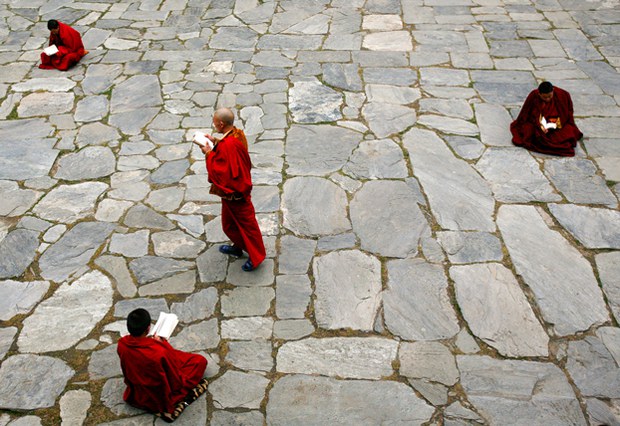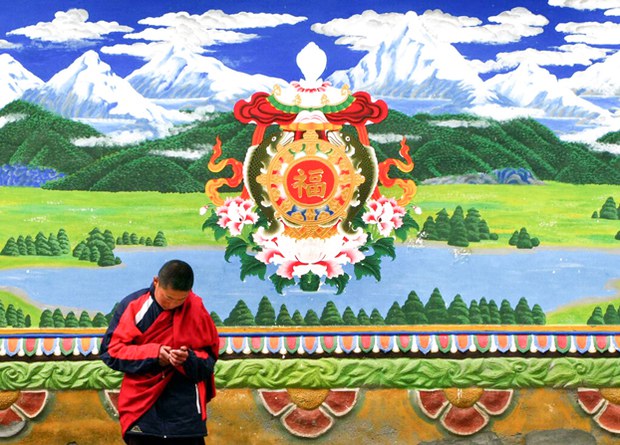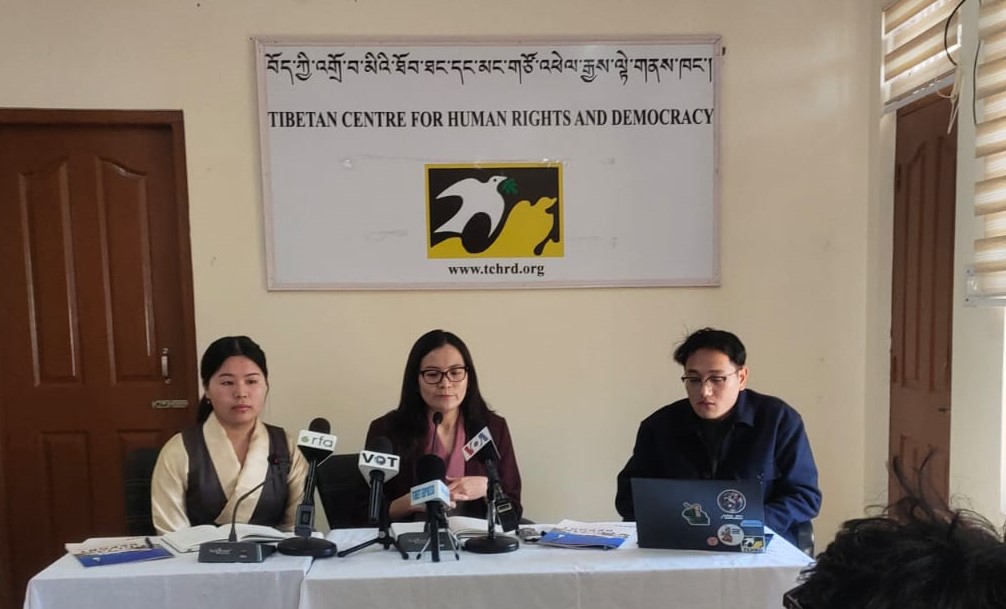
Graph displaying the absence of Tibetans in leadership posts under the CCP. Credit: ICT
The Chinese government says under its rule Tibetans have “become master of their own destiny,” and participate in government administration. But a new analysis shows that Tibetans are kept out of the most important leadership roles in their own homeland.
In its new report, “Position without Power—Tibetan Representation in the Chinese Administrative System,” the International Campaign for Tibet says the most critical government positions in Tibet are not in the hands of Tibetans.
In a system where the Chinese Communist Party has all the power, non-Tibetans hold every party position at the provincial level in Tibetan areas.
Non-Tibetans also hold the majority of party positions at the prefecture level in Tibetan areas, the analysis shows.
List of position holders
To create its analysis, ICT compiled a list of current position holders in the Tibet Autonomous Region, as well as Tibetan prefectures and counties in Sichuan, Qinghai, Gansu and Yunnan provinces. None of the positions are democratically elected.
The TAR spans much of western and southern Tibet, while the rest of the historically independent country—which China annexed more than 60 years ago—is split among those other provinces.
According to ICT’s analysis:
- No Tibetan has ever served as party secretary, the highest-ranking party position, in the TAR. Wu Yingjie, the current party secretary of the TAR, is Chinese.
- Of seven prefectures and prefecture-level cities in the TAR, only two (Lhasa and Shigatse) have Tibetan party secretaries. The other five positions are held by Chinese.
- Tibetans are also absent from top party positions in the Tibetan areas in other provinces. In Qinghai, where there are six Tibetan prefectures, only two have Tibetans as the party secretary. In Sichuan (which has two Tibetan prefectures), Gansu (one Tibetan prefecture) and Yunnan (one Tibetan prefecture), none of the prefecture party heads are Tibetan.
Tibetans do serve as the head of the TAR government and head of government in five of the region’s seven prefectures. There are also Tibetan government heads in prefectures in the other provinces and Tibetans in the National People’s Congress and Chinese People’s Political Consultative Conference in Tibetan areas.
However, all of those positions are subservient to the party leadership.
In addition, there are no Tibetan military commanders in any Tibetan area.
Mistrust of Tibetans
Although China claims Tibetans have equal opportunities to serve in government, one reason for their absence from positions of power could be the Chinese leadership’s mistrust of Tibetans and underlying racism toward them.
One clear example is Bapa Phuntsog Wangyal Goranangpa, who was a committed Communist Party member since before 1949. Despite this, party leaders denied Goranangpa any positions of authority in his later years and restricted his movements before his death in 2014.
Chinese leaders have also decreased the number of Tibetans in training for party leadership. According to Cai Xia, a retired professor from the Central Party School, Tibetans once made up two-thirds of the officials attending a class for Tibet. Today, that number is down to one-third, with Chinese cadres accounting for the rest.
China is also adding requirements to important jobs to exclude Tibetans. Earlier this year, police recruitment postings in Tibet said they would reject anyone who took part in “separatist activities” or had family members “who exited the country illegally.”
As ICT says in its report, China routinely treats any expression by Tibetans of their unique culture and religion as “separatist.” Many Tibetans also have family members who flee the country to escape the Chinese government’s oppressive rule.
ICT quote by Vice President Bhuchung K. Tsering:
“This report is a clear example of how the Tibetan people face discrimination on the fundamental issue of their governance. By denying the Tibetan people the right to effectively govern themselves, the Chinese authorities display the hollowness of their projection of Tibetans enjoying autonomy. Thus, China’s lack of trust in Tibetans has made them second-class citizens in their own homeland.
“Sadly, China’s token representation of Tibetans in government was on full display this week when Che Dalha (Chinese: Qi Zhala), the ethnic Tibetan chairman of the TAR government, spoke to reporters at a briefing in Lhasa. The visit by foreign journalists to Tibet’s capital was extremely rare, given China’s well-known restrictions on access there. There is no other option to Che Dalha than to deny the coercive training program that researcher Adrian Zenz documented using many of China’s own official sources.
“This showed that unfortunately, China would rather try to mislead the world about its coerced labor training system in Tibet rather than give Tibetans any meaningful role in their own governance.”





